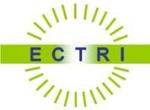The REGSMART final seminar was arranged on May 5th 2021.
New technologies have the potential to disrupt existing market structures entirely. The digital transformation of mobility is happening now, and existing frameworks may not be prepared for accommodating new and innovative services. Furthermore, the EU’s General Data Protection Regulation (GDPR) raises new questions regarding sustainable data policies. It is therefore critical to gain more thorough understanding on how regulatory frameworks and sector governance should adapt to the rapid development in technologies that public authorities are facing in the transport sector.
The seminar presents the outcome of the 3-year Nordic project Regsmart and answers if public authorities are better equipped to plan for emerging user-centric technologies. The seminar also address how public authorities meet opportunities and challenges related to data, regulation, and governance.
Program
Key-note Governing trade-offs in smart mobility: A window of opportunity? Dr. Louise Reardon University of Birmingham
How to govern smart mobility? Experiences to date and future directions. Claus Hedegaard Sørensen, VTI og K2
Micro mobility and national journey planning Andreas Tryti, Entur
Bolt - He who cannot be named David Mothander Head of PA for Nordics
RegSmart: Project overview Nils Fearnley, TØI
Tasters of results from the RegSmart project:
Regulatory frameworks and MaaS developments in Finland and Norway Anu Tuominen, VTT
Future scenarios for smart mobility Joakim Valevatn, Teknologirådet
Sustainable data policies for smart mobility Johan Axhamn, Lund University
E-scooter regulation Nils Fearnley, TØI
Does smart mobility change who the regulator should be? Regulating a mobility transition in a multi-tier government Andreas Kokkvld Tveit, TØI






